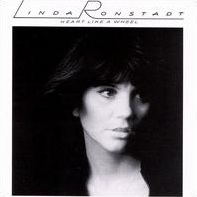
Heart Like a Wheel is the fifth solo studio album by Linda Ronstadt, released in November 1974. It was Ronstadt's last album to be released by Capitol Records. At the time of its recording, Ronstadt had already moved to Asylum Records and released her first album there; due to contractual obligations, though, Heart Like a Wheel was released by Capitol.
Stone Poneys were a folk rock trio formed in Los Angeles, consisting of Linda Ronstadt on vocals, Bobby Kimmel on rhythm guitar and vocals, and Kenny Edwards on lead guitar. Their recordings include Ronstadt's first hit song, a cover of Mike Nesmith's "Different Drum". The group featured Ronstadt showcasing an eclectic mix of songs, often from under-appreciated songwriters, requiring a wide array of backing musicians.
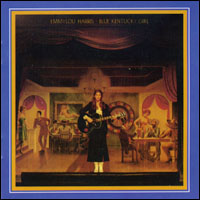
Blue Kentucky Girl is the sixth studio album by American country music artist Emmylou Harris, released in 1979. The album features Harris delving into more traditional country than the country-rock sound of her previous releases. Songs include work by Willie Nelson and Gram Parsons. Rodney Crowell's "Even Cowgirls Get the Blues" featured harmonies by Dolly Parton and Linda Ronstadt, and came out of the women's ill-fated 1978 recording sessions, where they first attempted to record a "trio" album.

Evangeline is the eighth studio album by Emmylou Harris. It was composed mostly of leftover material from past recording sessions and which did not fit into any of her other albums. Songs included a remake of "Mister Sandman", "Evangeline", which she had previously performed with The Band, Rodney Crowell's "Ashes By Now", and a cover of John Fogerty's "Bad Moon Rising". Though it received mixed reviews upon its release, the album was yet another commercial success for Harris. It was certified Gold in less than a year after its release. A single release of "Mister Sandman" did well on the charts, though neither Ronstadt's nor Parton's record companies would allow their artists' vocals to be used on the single, so Harris rerecorded the song, singing all three parts for the single release. Rodney Crowell's "I Don't Have to Crawl" was released as the album's second single.
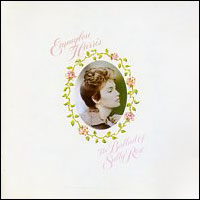
The Ballad of Sally Rose is the eleventh studio album by American singer Emmylou Harris released in February 1985. It marked a significant departure for Harris for two reasons. First, all the songs were written by her and her then-husband Paul Kennerley, while her previous albums had consisted mostly of others' material. Secondly, it is a concept album, loosely based on Harris' relationship with Gram Parsons. The album tells the story of a character named Sally Rose, a singer whose lover and mentor, a hard-living, hard-drinking musician, is killed while on the road. Dolly Parton, Linda Ronstadt and Gail Davies sing harmony on several of the songs. Many of the songs flow into one another to create a continuous momentum.
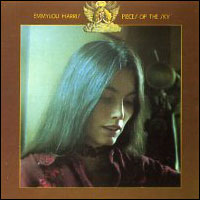
Pieces of the Sky is the second studio album and major-label debut by American country music artist Emmylou Harris, released on February 7, 1975, through Reprise Records.

Elite Hotel is the third studio album by American country music artist Emmylou Harris, released in 1975. Elite Hotel was Harris' second album to be released in 1975, preceded by the widely acclaimed Pieces of the Sky. Elite Hotel surpassed it on the Billboard charts, becoming Harris' first number one country album. The album yielded two number one country singles: "Together Again" and Harris' version of the Patsy Cline hit "Sweet Dreams". The song "One of These Days" made it to the number three spot. A performance of the Beatles' "Here, There and Everywhere" entered the pop charts at number 65. Harris' eclectic musical tastes were reflected in her choice of material by Hank Williams, The Beatles, Gram Parsons and Buck Owens. Harris' vocals on the album earned her the Grammy Award for Best Country Vocal Performance, Female.

"Heat Wave" is a 1963 song written by the Holland–Dozier–Holland songwriting team. It was first made popular by the Motown vocal group Martha and the Vandellas, who issued it as a single on July 10, 1963, on the Motown subsidiary Gordy label. The single reached number one on the Billboard Hot R&B chart—where it stayed for four weeks—and peaking at number 4 on the Billboard Hot 100.
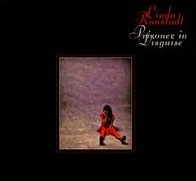
Prisoner In Disguise (1975) is Linda Ronstadt's sixth solo LP release and her second for the label Asylum Records. It followed Ronstadt's multi-platinum breakthrough album, Heart Like a Wheel, which became her first number one album on the US Billboard 200 album chart in early 1975.

Get Closer is the eleventh studio album by singer Linda Ronstadt, released in 1982.

Hasten Down the Wind is the seventh studio album by Linda Ronstadt. Released in 1976, it became her third straight million-selling album. Ronstadt was the first female artist to accomplish this feat. The album earned her a Grammy Award for Best Pop Vocal Performance, Female in 1977, her second of 13 Grammys. It represented a slight departure from 1974's Heart Like a Wheel and 1975's Prisoner in Disguise in that she chose to showcase new songwriters over the traditional country rock sound she had been producing up to that point. A more serious and poignant album than its predecessors, it won critical acclaim.
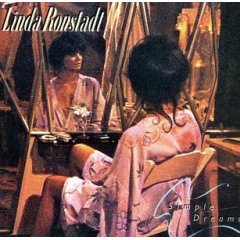
Simple Dreams is the eighth studio album by the American singer Linda Ronstadt, released in 1977 by Asylum Records. It includes several of her best-known songs, including her cover of the Rolling Stones song "Tumbling Dice" and her version of the Roy Orbison song "Blue Bayou", which earned her a Grammy nomination for Record of the Year. The album also contains covers of the Buddy Holly song "It's So Easy!" and the Warren Zevon songs "Poor Poor Pitiful Me" and "Carmelita".

Living in the USA is the ninth studio album by American singer Linda Ronstadt, released in 1978. The album was Ronstadt's third and final No. 1 on the Billboard 200 album chart.

Real Live Woman is the eighth studio album by American country music singer Trisha Yearwood, released on March 28, 2000.
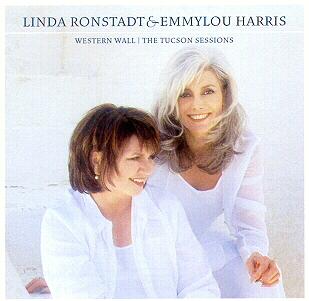
Western Wall: The Tucson Sessions is a 1999 duet album by American singer, songwriter, and producer Linda Ronstadt and singer, songwriter, and guitarist Emmylou Harris, who had previously collaborated on two albums with Dolly Parton.

Last Chance for a Thousand Years: Dwight Yoakam's Greatest Hits from the 90's [sic] is the second compilation album by American country music singer Dwight Yoakam. It includes 11 of his hit singles from the 1990s, as well as three new recordings. These new songs are a cover of Queen's "Crazy Little Thing Called Love", as well as an adapted rendition of Rodney Crowell's "Thinking About Leaving" and "I'll Go Back to Her", originally by Waylon Jennings. “Crazy Little Thing Called Love,” which hit #12 on the country singles chart and rose to #64 on Billboard’s Hot 100, was Yoakam's biggest hit single since 1993's "Fast as You." Last Chance for a Thousand Years has been certified gold by the RIAA.

Evergreen, Vol. 2 is the second album from the Stone Poneys, released five months after The Stone Poneys. It was the most commercially successful of the Stone Poneys' three studio albums.

Feels Like Home is a studio album by American singer Linda Ronstadt released in 1995. It reached #75 and lasted 12 weeks on the Billboard album chart. It received excellent critical reviews upon release. According to Nielsen SoundScan, the disc sold 188,815 copies in the United States. This album is now out of print physically, although it is available digitally and five of its tracks were remixed and subsequently included on Trio II.
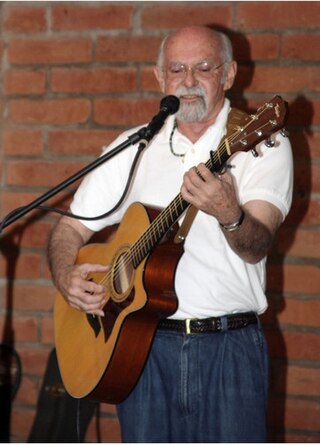
Bobby Kimmel is an American musician and songwriter who currently performs with the acoustic folk group I Hear Voices. He has been recording and performing in concert for over 50 years and was a founding member of the Stone Poneys, along with Linda Ronstadt and the late Kenny Edwards.

What's Wrong with This Picture? is the second album by the singer-songwriter Andrew Gold. It was released in 1976 on Asylum Records. It includes the hit single "Lonely Boy" which peaked at No. 7 on the Billboard singles chart featuring Linda Ronstadt on backing vocals.



















